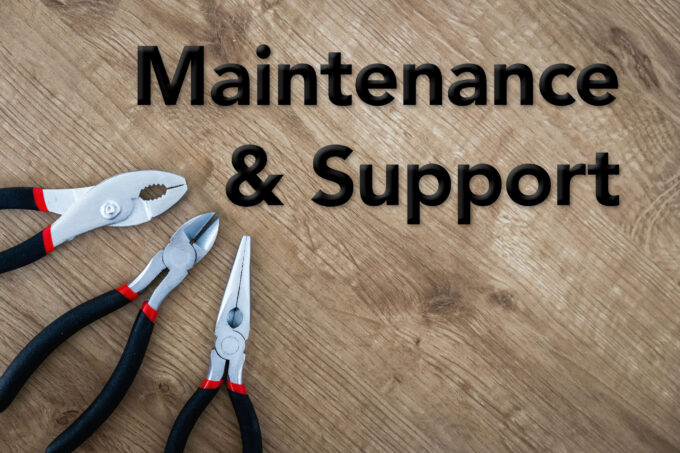Your website is not a “set it and forget it” project. Ongoing website maintenance is a crucial aspect of maintaining its longevity and peak performance. In this blog post, we’ll delve into the significance of regular website maintenance, the reasons behind its importance, and offer practical tips for keeping your website in top shape.
Ensuring Security
Regular maintenance includes security updates that protect your website from vulnerabilities and potential breaches.
Practical Advice: Schedule regular security scans and updates to protect your website from emerging threats.
Maintaining Website Speed
Over time, websites can accumulate excess code, plugins, and content that slow down loading times. Maintenance helps keep your site fast and responsive.
Practical Advice: Regularly audit your website for slow-loading elements and optimize for speed.
Content Freshness
An up-to-date website with fresh content engages visitors and retains their interest.
Practical Advice: Implement a content calendar and update your website with fresh content on a regular basis.
Compatibility
As web browsers and devices evolve, ensuring compatibility is crucial to reach your audience effectively.
Practical Advice: Regularly test your website on various browsers and devices to ensure consistent performance.
SEO Health
Google rewards fresh and well-maintained websites with higher search engine rankings.
Practical Advice: Implement a regular SEO audit and update your site accordingly.
User Experience
A well-maintained website provides a better user experience, reducing bounce rates and increasing engagement.
Practical Advice: Continuously monitor user feedback and analytics to make improvements.
Backup and Recovery
Regular backups of your website protect against data loss and provide a safety net in case of emergencies.
Practical Advice: Set up automated backup systems and store backups securely.
Eliminating Broken Links
Broken links frustrate visitors and can harm your website’s credibility.
Practical Advice: Regularly scan for broken links and fix them promptly.
Mobile Responsiveness
As mobile device usage grows, ensuring your website is mobile-responsive is vital.
Practical Advice: Regularly test your website’s responsiveness on various devices.
Software and Plugin Updates
Outdated software and plugins can be vulnerable to security breaches.
Practical Advice: Stay on top of updates for your CMS and plugins, and implement them promptly.
Back-End Optimization
Clean up your website’s back end, including databases and server files, to maintain optimal performance.
Practical Advice: Regularly optimize your website’s database and server resources.
Website maintenance isn’t a one-time task—it’s an ongoing commitment to the health and longevity of your online presence. By implementing these practical tips and making website maintenance a regular part of your routine, you can ensure your website remains secure, responsive, and effective in meeting your goals.



